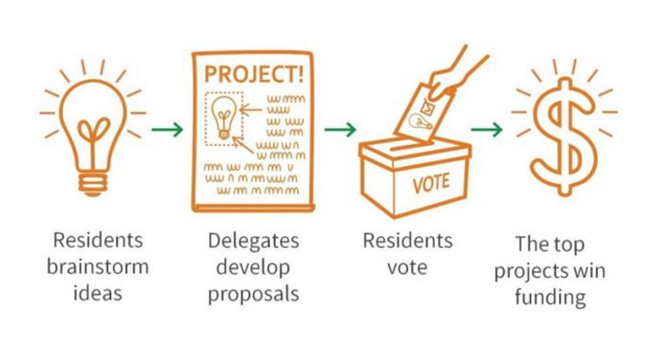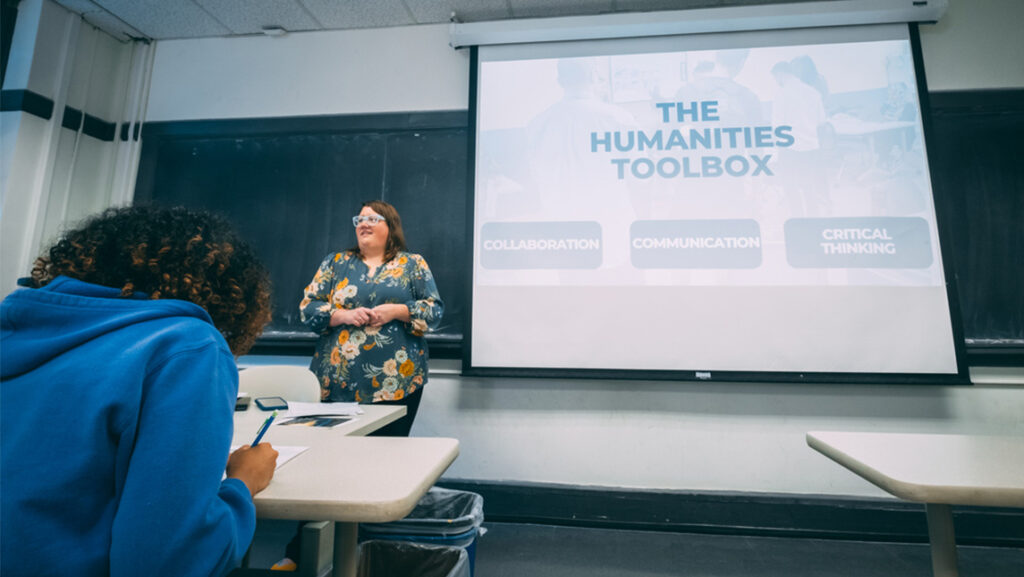Greensboro is the first city in the American South to attempt participatory budgeting. Community members from all five City Council districts will directly decide how to spend $100,000 per district. The idea is that participatory budgeting can deepen democracy in communities and build stronger communities.
Over the course of two semesters, about 50 UNCG undergraduates and two graduate students in UNCG Communication Studies have been involved in helping get the word out throughout the city and in helping facilitate the process.
They were led by Dr. Spoma Jovanovic, professor of communication studies.
Jovanovic is part of a local research board that, along with the public, will have access to the data. “It’s extremely transparent.”
She has published one article on this research so far. There will be more. And she has a book proposal on the topic of participatory democracy. The book would include research about this Greensboro participatory budgeting process.
She notes that some key participants in the local participatory budgeting process have been UNCG alumni or graduate students.
The city council gave approval to the participatory budgeting (BP) process by a 5-4 vote in 2014.
Through the BP process, citizens get involved in the government process as they propose ideas and ultimately vote on them, district by district. They research the feasibility and costs of the ideas. They see why some ideas are very costly. Government becomes more transparent. Citizens become more informed. Trust and understanding grows, Jovanovic explains.
It’s takes a lot of time and effort, on the part of a lot of people, to work – as everyone involved listens, learns and finds out what people want and need. “Democracy is messy … in a good way, she says.”
Researchers such as Jovanovic study participatory budgeting from various angles. Jovanovic is interested from a communication standpoint.
Government staff and officials learn what citizens want. At the many meetings throughout the city, government staff were on hand to listen and answer citizens’ questions. Citizens learned. Staff learned. “There was a whole education process going on,” she explains.
As an example, those advocating for more or better bus shelters learned the cost breakdowns, the accessibility / ADA requirements, the surface requirements and more.
Citizens in five districts proposed ideas – ranging from a phone app to help bus riders with bus schedules and times, to shade canopies for community pools, to bicycle lane improvements. There were 675 suggestions, which were then narrowed down. Voting on these ideas ended earlier this month. Presentations to the city council on the most requested items will be later this year.
Jovanovic is currently doing research on the surveys.
“I hope the research shows how participatory budgeting increases citizens’ engagement,” she says, in addition to boosting the relationship people have with their government.
For the UNCG Communication Studies faculty and students it’s community engagement. And with an idea that began in Brazil and is being considered, she says, in places from Canada to Scotland to China, it becomes global engagement.
“People want to have a say in their lives.”
More information is at the City of Greensboro’s web site. The handbook may be viewed here.
By Mike Harris



